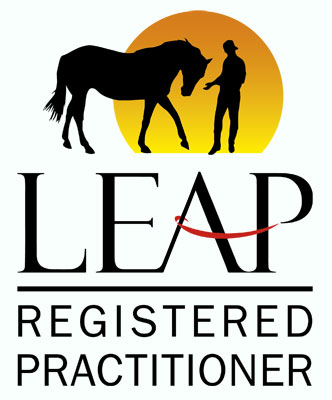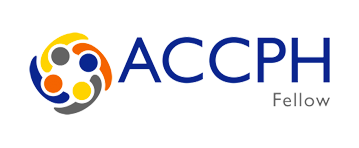
Blog
Starting Out in the Field of Equine Facilitated Practice
28 February 2016
This article is aimed at those who are just finding out about this professional field and those interested in possibly training to deliver this work, or already training.
NB: For the purposes of these articles the phrase “Equine Facilitated Practice” covers all the following type of Equine Facilitated work: EFL; EAL; EFP; EAP; EAT; EAL; EGC; EGE, to name a few.
At present the field of Equine Facilitated Practice in the UK is unregulated, as it is in many other countries around the world. This means that no, one, over-arching body oversees the training, quality and delivery of this work in the UK. There is no, overall accountable or governing organisation, no membership-based organisation and no checks and balances from any one organisation to monitor the standards and ethical delivery of this work.
There is now however at a practitioner Registers which goes some way to assessing suitability of practitioners and organisations to offer services to the public: The Equine Assisted Services Partnership (EASP), (formerly called the HEIR Register and originally set-up under HETI).
In addition, what exists is a wide variety of different training organisations and providers, who should be monitoring what their practitioners are doing, and employing codes of ethics and guidelines for practicing safely.
However, as has existed since the earliest days of this work, the following situation is still possible and happening: Anyone can set-up and begin offering equine facilitated/assisted learning, coaching, leadership development, therapy or psychotherapy to members of the public. Whilst we are all hopeful that this situation will change at some point in the near future, it is still not clear how and when this will happen. However, not just anyone can obtain insurance to deliver these services, so insurers should, hopefully, be requesting to see certifications and qualifications in this work. Even so, I am also in no doubt that those who are presently not suitably qualified and are offering some form of this work, will also likely not be concerned with getting the correct insurance.
Therefore, this has always been and is still a matter of major concern to those of us who are fully trained and accredited to deliver this sensitive and profoundly life-changing method.
Therefore, this article aims to raise and addresses the issues that this particular climate involves and offer some advice for addressing the situation as it currently stands.
If you have recently discovered this powerful work; perhaps you have been doing research on the Internet and maybe attended an introductory workshop, then I strongly encourage you to read on and learn the realities rather than the myths, about what this work involves.
Some Equine Facilitated Practice myths which first need clarifying:
- Having your own horses and perhaps facility, farm, land, stables and arena does not equate to being able and ready to deliver any type of Equine Facilitated Practice. Here's a simple analogy: I may have a spare room in my house - this doesn't mean I can now set-up as a counsellor or therapist without first obtaining the necessary training, qualifications and experience.
- Attending a one-day taster session/workshop/ introductory-day, reading books or articles on the Internet, or hearing other equine professionals, such as natural horsemanship trainers, or equine healers talk about the “power of horses helping people”, does not equate to being able and ready to deliver any type of Equine Facilitated Practice; no matter who your intended client group is.
- Myth: Anyone can do this work. This is not necessarily so. Ask yourself honestly: do you have the following -
- The right attitude: i.e. The commitment to both work on yourself (personal development and growth) and the commitment to obtain the best possible training you can?
- Strong, natural qualities and suitable aptitude: These include empathy, intuition, non-verbal communication skills, a desire for and commitment to developing self-awareness, compassion, and a calm and grounded approach to working with both horses and people?
- The right background and experience? That is: Lots of experience with horses, and lots of experience working with and supporting people, some of whom may be very vulnerable, through difficult and powerful awakening of emotions and change in themselves and their lives?
- Do you have the intention to go and undertake as much personal development and therapy yourself first, as well as an ongoing basis?
- Do you have the intention to undertake a formal professional training in this work with a reputable training provider before you begin to professionally deliver this type of work?
- Do you have the intention to be fully insured; carry out risk-assessments; work within health & safety regulations and undertake first aid training? As well as to employ a mentor/supervisor to support and guide you?
- Looking to make some money? Be under no illusions: delivery of this work is hugely costly as there are significant, ongoing fixed overheads such as upkeep of the horses, facility, and proper insurance, as well as ongoing marketing and your continued personal and professional development. It is rarely possible to make a good living out of this work solely. Mostly, it is about being able to cover your costs and most practitioners have a second source of income to support their work. Finally, from a financial angle, consider this: as your horses are there to help you deliver your work, if you had to become insolvent or bankrupt, your horses would have to be sold as they would be considered “business assets”.
- You may have already done some training and work in “related areas”, e.g.: Reiki, NLP; Animal Communication; work with young people; teaching riding; training horses; natural horsemanship, horse whispering, etc. Whilst this is all very valuable again, none of these mean you are also suitable or now qualified for this work, as it specifically requires: a) much in-depth self-awareness; b) a commitment to continued personal development; c) an ability to work both sensitively with horses in an inter-species partnership; and d) an ability to sensitively support people when vulnerable and in need of skilled “holding” and guidance.
So, if you have just heard about this work and are genuinely interested in exploring further, please read the following advice, and then contact a reputable and well-trained practitioner or training provider for further advice and guidance.
The most important thing to check from the outset is whether the person offering training that you are potentially interested in is fully trained themselves in either EFL or EFP/EFT. Preferably, that they have trained with one of the bigger, well-established training organisation in Equine Facilitated Practice. *See this Guide which lists some of the most well established training providers.
First - seek to experience as much of this work as possible yourself first a client/participant. It is vital that you do not merely undertake a short certification course to become qualified via the quickest and cheapest route, without fully experiencing the profound impact this work can have on you first. This is to ensure that the method it is fully embodied in yourself first before even considering to undertake a formal practitioner training course. Contact practitioners and book in for both private sessions and group workshops as a participant, but not just with a view to practicing yourself. This has to be first and foremost about YOU developing, otherwise, you will not be ready to support other people through this process. It can be a life-changing method and can uncover deep seated wounds and issues. Remember the maxims: "Know Thyself" and "Healer Heal Thyself".
Second - the different training approaches that exist are just that: different. Therefore I strongly suggest that you go to taster sessions from the different training models to see which one fits and resonates the most for you personally, and for the area of work and type of clients you are interested in working with. Don’t chose a training provider solely based on what is written on their website, or from a single phone call; you have to meet the trainers in-person and see how they carry out this work and most specifically pay attention to:-
a) How their horses live and how they engage with their horses? Are the horses relaxed, happy to connect and work? Are they healthy, sound, living as a herd out in pasture? Are their horses free to choose to engage? Free to move around? And free not to be involved?
b) How are they as practitioners towards their participants? Do they judge them or try to fix them, or do they strive to make them feel safe and supported? Do they ignore difficult group dynamics? Can they "hold the sacred space of possibility"?
Third - speak to an experienced practitioner who has been operating for a number of years and hear from them about how challenging this work can be at times to deliver, and all that is involved in making it viable as a rewarding business.
Finally - Be under no illusions that this work can be exceptionally challenging at times. It requires equal measures of deftness of skill at partnering sensitively with horses and at supporting vulnerable clients with significant needs, fragility and complexity of issues. In essence, it is bringing together two areas of professional work and offering this as one modality. Therefore, not everyone is suitable to deliver this method effectively and safely; good intentions and the desire to help others is not always enough.
© Angela Dunning, February 2016; up-dated June 2019; January 2020; November 2021; April 2025.
You might also want to read: Guide to Choosing a Practitioner and my book, The Horse Leads the Way: Honoring the True Role of the Horse in Equine Facilitated Practice, is also a valuable resource on what is involved and the skills needed to be a good practitioner.








